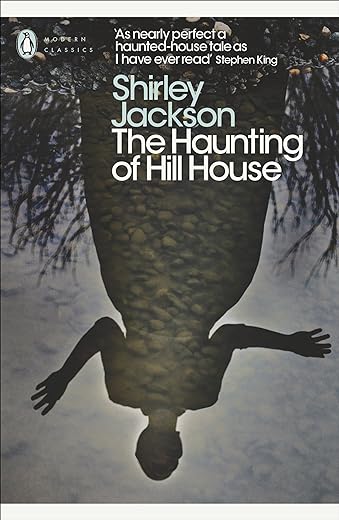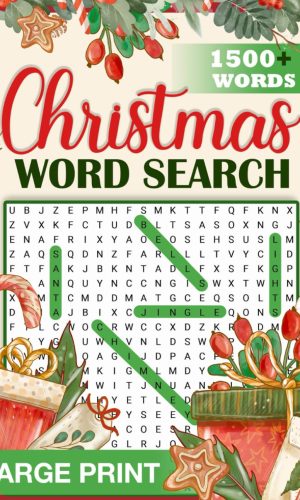The Haunting of Hill House: Penguin Modern Classics
£8.60£9.50 (-9%)
The best-known of Shirley Jackson’s novels and a major inspiration for writers like Neil Gaiman and Stephen King as well as the hit Netflix series, The Haunting of Hill House is a chilling story of the power of fear
‘Shirley Jackson’s stories are among the most terrifying ever written’ Donna Tartt
Alone in the world, Eleanor is delighted to take up Dr Montague’s invitation to spend a summer in the mysterious Hill House. Joining them are Theodora, an artistic ‘sensitive’, and Luke, heir to the house. But what begins as a light-hearted experiment is swiftly proven to be a trip into their darkest nightmares, and an investigation that one of their number may not survive. Twice filmed as The Haunting, and the inspiration for a 10-part Netflix series, The Haunting of Hill House is a powerful work of slow-burning psychological horror.
‘An amazing writer … If you haven’t read her you have missed out on something marvellous’ Neil Gaiman
‘As nearly perfect a haunted-house tale as I have ever read’ Stephen King
‘The world of Shirley Jackson is eerie and unforgettable’ A. M. Homes
‘Shirley Jackson is one of those highly idiosyncratic, inimitable writers…whose work exerts an enduring spell’ Joyce Carol Oates
Read more
Additional information
| Publisher | Penguin Classics, 1st edition (1 Oct. 2009) |
|---|---|
| Language | English |
| Paperback | 256 pages |
| ISBN-10 | 0141191449 |
| ISBN-13 | 978-0141191447 |
| Dimensions | 19.7 x 12.9 x 1.56 cm |




by Charlotte
I’ve been putting The Haunting of Hill House off for far too long. Especially when I consider We Have Always Lived in the Castle to be one of my favourite books. I admit that I was intimidated by the thought of reading a classic, and a little scared by the content thanks to how negatively the TV version of this story affected me. I needn’t have worried though, as I found myself absolutely loving this book and now I’m left kicking myself for not getting to it faster.
I’d forgotten how atmospheric and whimsical Shirley Jackson’s writing is, but Hill House quickly reminded me. While I wasn’t scared, per se, there were definitely scenes that left me feeling uneasy and glancing at my doorway as I read at nighttime. The uncertainty and unreliable nature of the characters, as well as the bleak and claustrophobic descriptions of the house really served to create a fantastic atmosphere. Add to that the speed and ease with which I read this and you have a recipe for a fantastic book. I really cannot fault the writing in this because everything just worked.
There were a few times when the narrative did confuse me, but I feel like that’s intended and the whole point of the book. That doesn’t mean it was okay, just that I understand why it was done and can appreciate how Jackson managed to make us slip and slide in our sanity along with Eleanor. It was really cleverly done, even if I did have to stop and re-read some sentences to fully grasp what was real and what wasn’t. It made for an enjoyable – if confusing – read.
Overall, I’m really glad I finally picked this up as I can completely see why it’s regarded as a classic horror story. I highly recommend it to anyone looking for a creepy read.
by Gregory S. Buzwell
The Haunting of Hill House is, in many ways, the definitive ghost story. A respected academic invites a group of strangers – all chosen either because they have a knowledge of Hill House or because they have a sensitivity to the supernatural – to a reputedly haunted mansion and then proceeds to take notes as events spiral into the mysterious, the macabre and the grotesque. What sets it above so many other ghostly tales, however, is Shirley Jackson’s quality as a writer: she had a gift for conveying the sense of unease and an eye for the little things that gradually, when taken together, cause the reader to look over their shoulders in a nervous, bewildered fashion. For example the doors in Hill House always swing closed of their own accord when nobody is looking. Initially it seems quirky and odd, but by the final chapters it seems malevolent, claustrophobic and terrifying.
The Haunting of Hill House works so well for a number of reasons. The characters are well-drawn, particularly Eleanor with her sense of not belonging and her pitiful desire to be liked but also Theodora, who is not quite what she seems and Luke, heir to the house, who has a playful attitude which topples on occasion into spite and malice. Dr Montague, with his notes and charm acts as a balance in the early part of the book but even he sometimes acts in ways that put the group at risk. Add to this Hill House itself – vile, diseased, bereft of sunlight and nestled deep in its secluded hills and you have a horror story just waiting to happen.
I first read The Haunting of Hill House when I was about fourteen. It haunted me then and it has haunted me further on each subsequent reading. Each time different elements strike me, whether they be the gothic-trappings of Theodora’s clothes being discovered drenched in blood or else the creepy writing on the walls which appears from nowhere announcing ‘Come Home Eleanor’. The spooks and shocks are carefully placed throughout the text; just when you think events have calmed down something, somewhere will jar your senses and once again your nerves are on edge. Paranoia and distrust go hand in hand with the supernatural, each feeding off and fueling the other. It’s a fabulous book: subtle, somehow off-kilter, disturbing and shocking. Definitely the haunted house by which all others should be compared. Read it on a winter’s night by all means. But keep all the lights on and if the door of your room is closed, make sure it was you who closed it.
by Rose
A bit too full of the ‘he said’ ‘she said’ for my taste and, I’d like to know how the doctor’s wife got in touch with Eleanor’s sister. Otherwise, a meandering plot but not too bad. It’s nice to read a novel that’s not full of mobile phones and the internet. A pretty weird ending though but that’s no criticism.
by John Hopper
This is a classic haunted house story published in 1959, where the house itself is really the main character, and the plot driven by the effect it has on its visitors, especially on young Eleanor Vance, with ultimately tragic consequences – in the words of Dr Montague “the menace of the supernatural is that it attacks where modern minds are weakest, where we have abandoned our protective armor of superstition and have no substitute defense.” The story is very atmospheric and claustrophobic, and highly effective in its genre. What marred it slightly for me was some of the bizarre dialogue between the characters, even before the hauntings really took effect. A shocking ending.